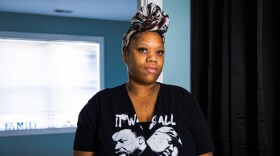-
A new Washington University study found that St. Louis’ guaranteed basic income pilot program helped hundreds of families. But a lawsuit paused payments, and later crises deepened the financial strain many participants already faced.
-
It typically takes six months to find your first job, and for May graduates that milestone is almost here. Recent unemployment data suggests a tightening job market caused by economic uncertainty. Please fill out our survey (below) to share your experience.
-
Staff cuts, the closure of regional printing presses and cuts to printed editions characterize Lee Enterprises as it tries to expand its digital subscriber base while keeping existing print customers and advertisers on board.
-
In the wake of the May 16 tornado, applications for demolition permits on private property doubled. Property owners are making tough decisions to raze their homes, and whether to stay or leave the city.
-
With more school districts adopting a four-day school week, educators and parents are grappling with a question that isn't easy to answer: What trade-offs come with a shortened school week, and are those trade-offs worth it? It depends who you ask.
-
Honesty Bishop was attacked by her cellmate. Missouri prison officials deemed her sexually active and kept her in isolation for more than 2,000 days.
-
Carol Mayorga was detained in April during an immigration check-in at the ICE office in St. Louis. But on Wednesday, the beloved pancake house waitress is walking free from the Greene County Jail.
-
Information is emerging about how many people in north St. Louis did not have homeowners insurance when storms ripped through the region on May 16. Still, the data is just an early estimate, against the backdrop of a rising number of homeowners around the country who don’t have policies.
-
A Kennett, Missouri, woman went to St. Louis last month for what she thought was a routine meeting with immigration officials to renew her immigration documents. Instead, they shackled her and are now trying to deport her to Hong Kong.
-
If you are among those who are without coverage and sustained damage to your property, the Midwest Newsroom and STLPR invite you to share your story with us.
Play Live Radio
Next Up:
0:00
0:00
Available On Air Stations











